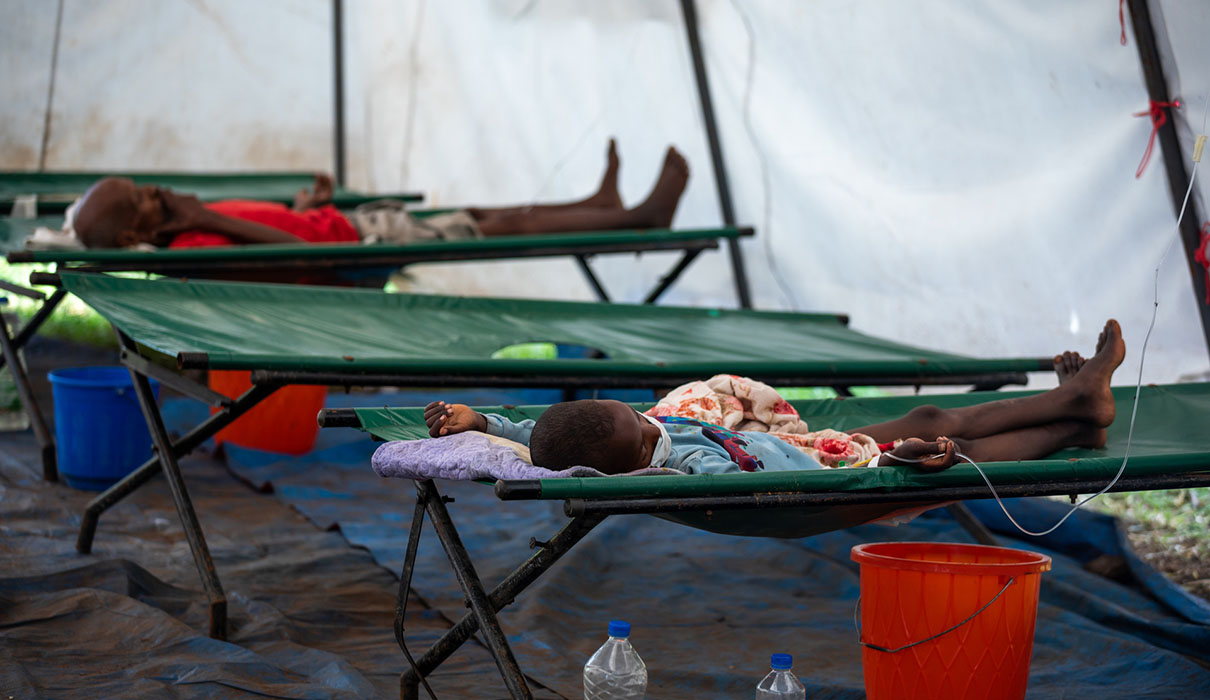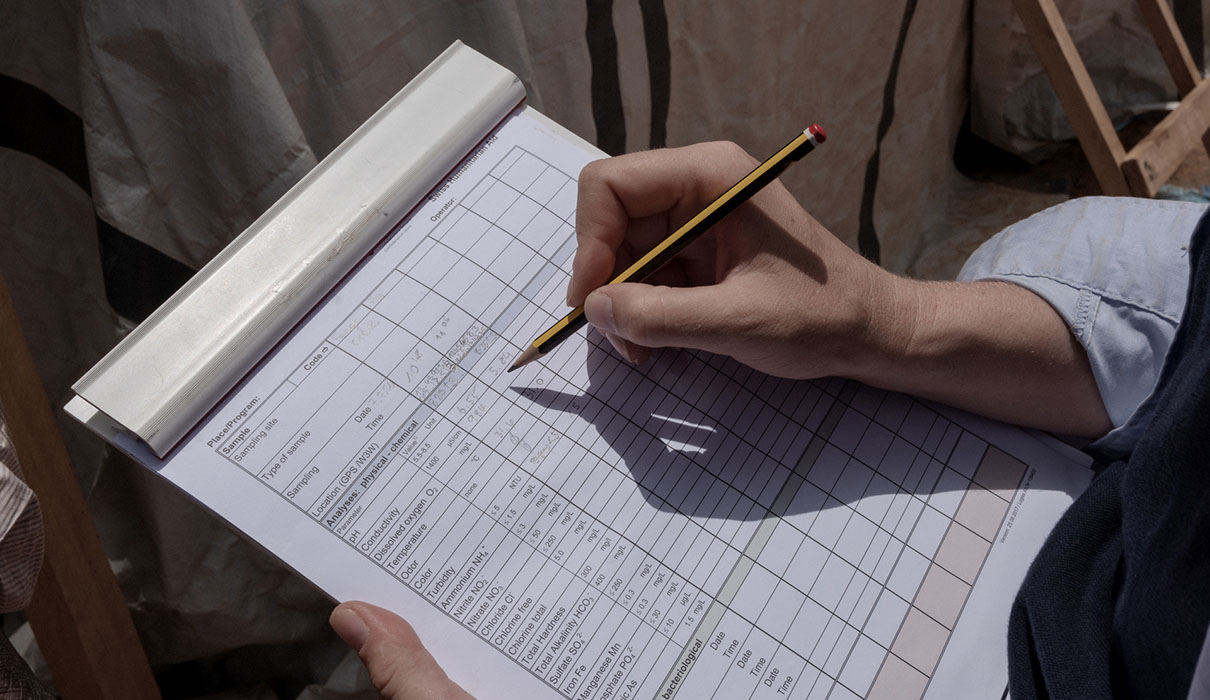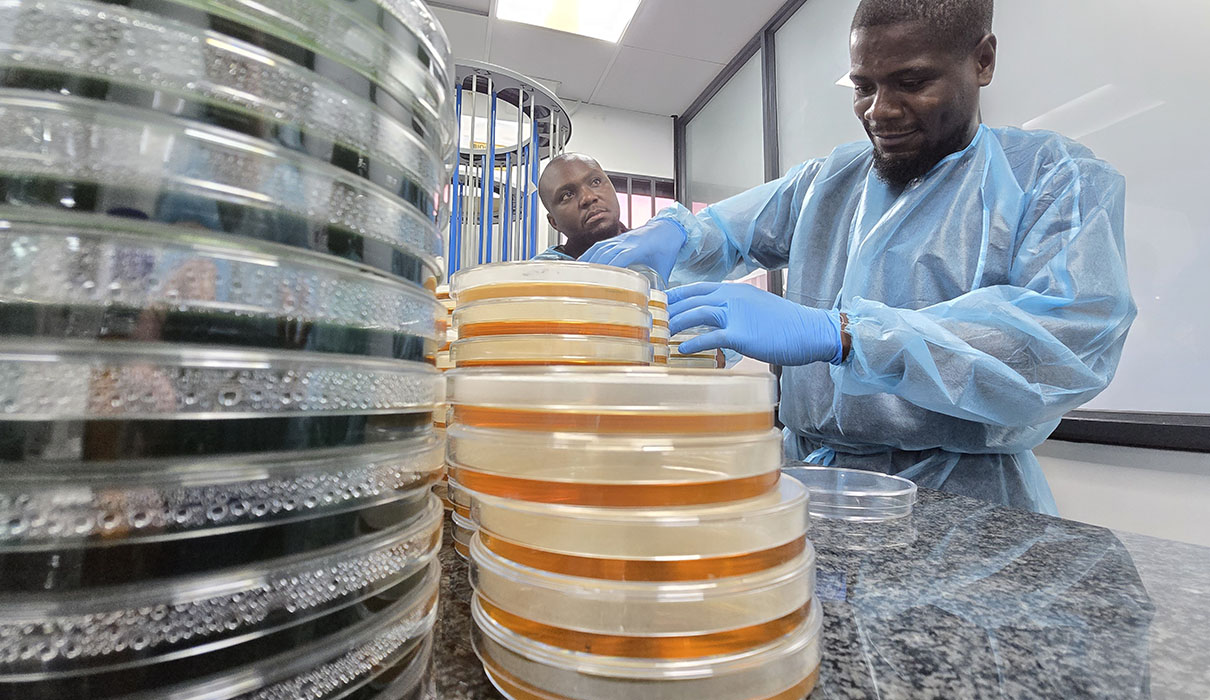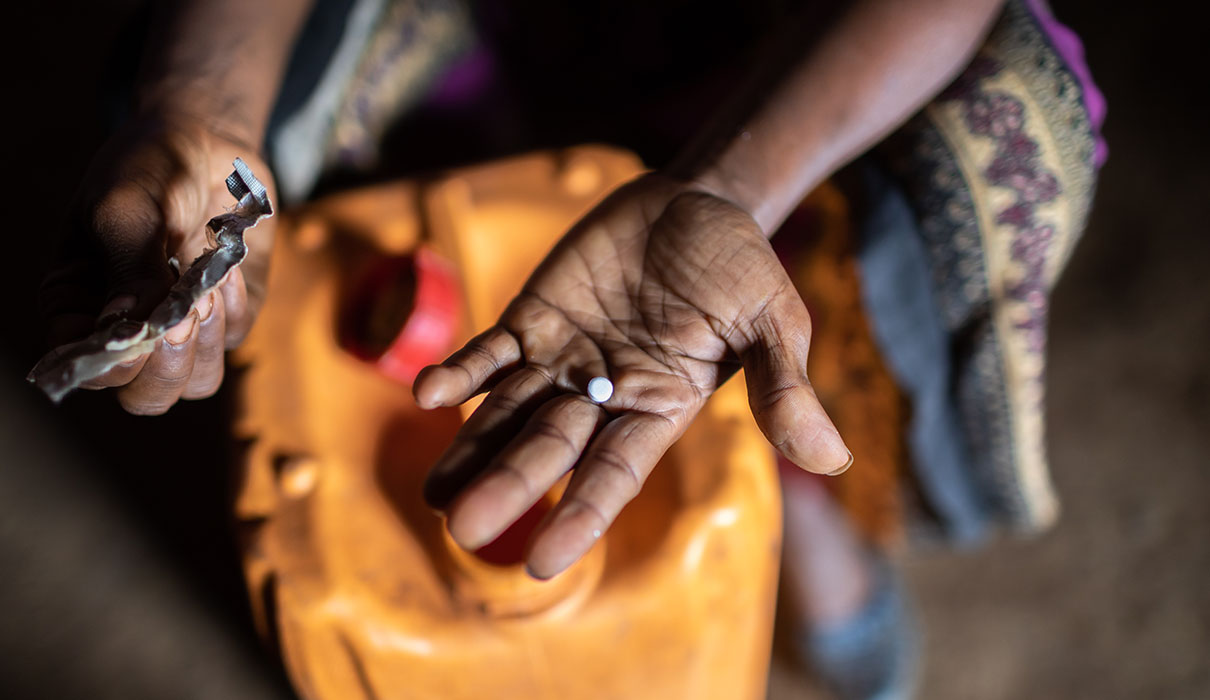Des recommandations techniques pour la prévention, la maîtrise et l’élimination du choléra
Les groupes d’étude techniques du GTFCC élaborent et mettent à jour des recommandations techniques multisectorielles afin de soutenir les partenaires et les pays dans leurs efforts pour maîtriser les épidémies et éliminer le choléra. Leurs publications comprennent des conseils sur la planification stratégique (par exemple le guide d’élaboration des plans nationaux de lutte contre le choléra) et des documents axés sur les opérations, comme des manuels de terrain, des outils de travail, des formulaires/modèles et des programmes de formation. Ces ressources sont disponibles en anglais, et certaines traductions existent en arabe, en français et en portugais. L’application téléphonique est également disponible en russe et en ukrainien.

Le groupe de travail a réalisé d’importants progrès pour améliorer la prise en charge clinique et accroître l’accès au traitement du choléra. Cela comprend des stratégies d’intervention et des recommandations générales et détaillées sur le traitement des patients dans les centres de traitement ambulatoires (ORP) et hospitaliers (CTU/CTC), ainsi que des recommandations sur la mise en place et la gestion des structures.
Le groupe d’étude sur la prise en charge des cas élabore des recommandations et des outils sur les normes de prise en charge clinique, notamment l’évaluation et le triage des patients, les plans de traitement et les outils de travail pour soutenir la qualité des soins aux patients. Des recommandations ont été publiées sur le traitement de certaines populations à risque, notamment les femmes enceintes et les enfants souffrant de malnutrition aiguë sévère.
Les priorités futures portent sur l’amélioration des modèles de soins de proximité pour soutenir le traitement décentralisé, et sur l’amélioration de la collecte de données cliniques pour améliorer la prise en charge clinique des patients.
Explorer toutes les ressources du groupe d’étude Prise en charge des cas

Objectif principal
Le groupe d’étude sur l’épidémiologie élabore des lignes directrices et des outils pour renforcer la surveillance du choléra afin de détecter rapidement les épidémies et d’assurer un suivi fiable, ainsi que pour améliorer l’utilisation des données de surveillance afin de mieux orienter les stratégies ciblées pour un contrôle efficace.
Le groupe d’étude a joué un rôle déterminant dans l’élaboration de directives en matière de surveillance de la santé publique et de méthodes permettant d’identifier les zones prioritaires d’interventions multisectorielles (PAMI).
Ressources clés
Explorer toutes les ressources du groupe d’étude Épidémiologie

Le groupe d’étude sur les laboratoires a élaboré des recommandations sur les stratégies de dépistage du choléra, les procédures de laboratoire, ainsi que des aides pratiques et des outils de signalement normalisés pour aider les laborantins.
Le groupe vise à renforcer les capacités des laboratoires en promouvant des normes minimales pour le prélèvement et le transport des échantillons, les tests de diagnostic rapide, la confirmation en laboratoire du choléra et d’autres domaines essentiels qui soutiennent la qualité des services de laboratoire de santé publique.
Explorer toutes les ressources du groupe d’étude Laboratoires

Objectif principal
Le groupe d’étude sur les OCV élabore et met à jour des directives normatives pour la planification et la mise en œuvre des campagnes de vaccination contre le choléra (préventives et réactives). Le groupe d’étude examine les directives relatives aux demandes de vaccins et gère le cadre d’allocation des stocks pour établir les priorités en matière d’envoi de vaccins. Le groupe travaille également à la documentation de l’utilisation des OCV et à l’affinement des outils de suivi et d’évaluation des campagnes.
Ressources clés
Explorer toutes les ressources du groupe d’étude OCV

Objectif principal
Le groupe d’étude WASH a pour mission de fournir des directives normatives spécifiques au choléra et de promouvoir la recherche et l’innovation dans les interventions WASH.
Parmi ses récentes réalisations, on peut citer la publication de lignes directrices sur la surveillance environnementale, une visibilité accrue lors des réunions de haut niveau et le renforcement de la base de données factuelles pour les stratégies WASH.